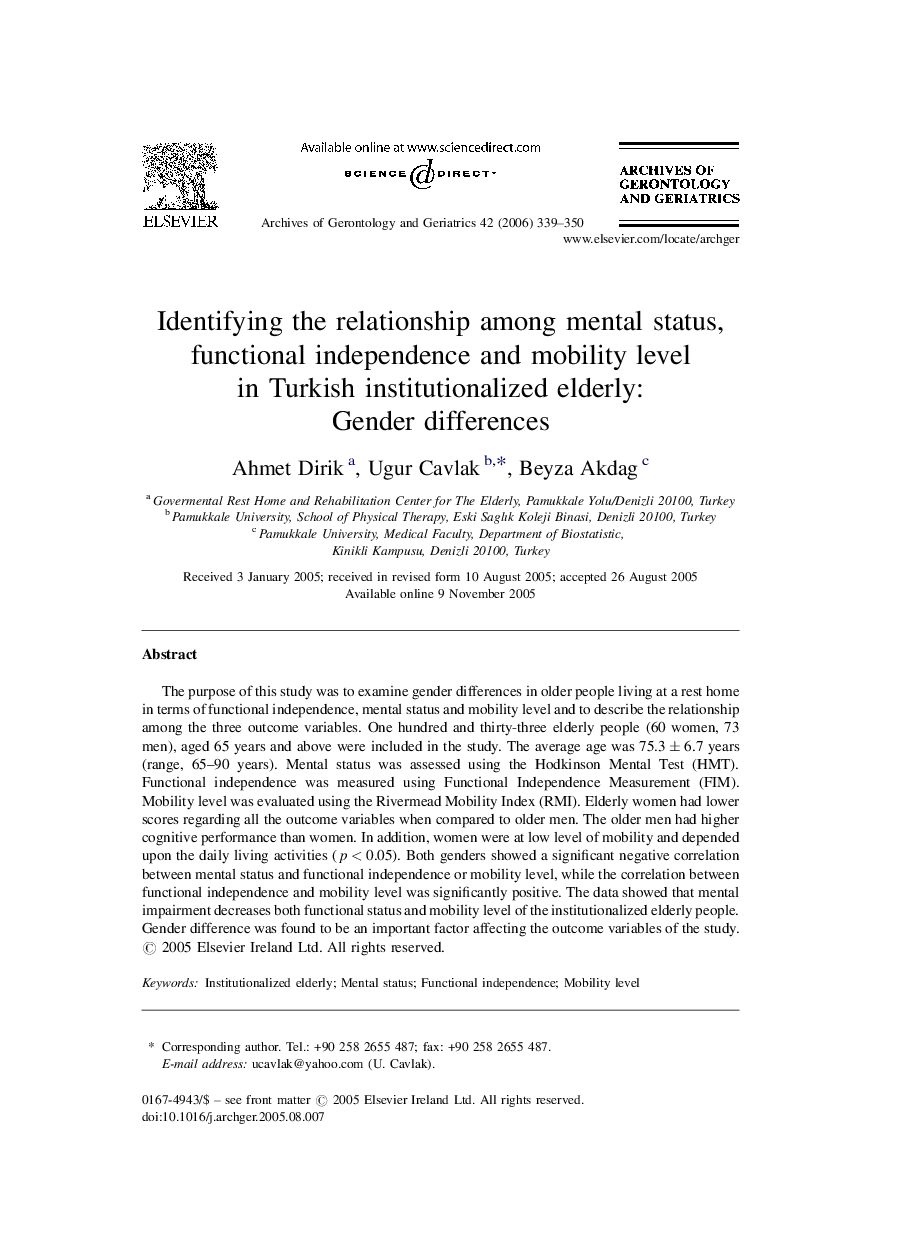| کد مقاله | کد نشریه | سال انتشار | مقاله انگلیسی | نسخه تمام متن |
|---|---|---|---|---|
| 1904269 | 1534489 | 2006 | 12 صفحه PDF | دانلود رایگان |

The purpose of this study was to examine gender differences in older people living at a rest home in terms of functional independence, mental status and mobility level and to describe the relationship among the three outcome variables. One hundred and thirty-three elderly people (60 women, 73 men), aged 65 years and above were included in the study. The average age was 75.3 ± 6.7 years (range, 65–90 years). Mental status was assessed using the Hodkinson Mental Test (HMT). Functional independence was measured using Functional Independence Measurement (FIM). Mobility level was evaluated using the Rivermead Mobility Index (RMI). Elderly women had lower scores regarding all the outcome variables when compared to older men. The older men had higher cognitive performance than women. In addition, women were at low level of mobility and depended upon the daily living activities (p < 0.05). Both genders showed a significant negative correlation between mental status and functional independence or mobility level, while the correlation between functional independence and mobility level was significantly positive. The data showed that mental impairment decreases both functional status and mobility level of the institutionalized elderly people. Gender difference was found to be an important factor affecting the outcome variables of the study.
Journal: Archives of Gerontology and Geriatrics - Volume 42, Issue 3, May–June 2006, Pages 339–350